<i>Urochloa brizantha</i> cultivated in aluminum-toxic soil: Changes in plant growth and ultrastructure of root and leaf tissues
DOI:
https://doi.org/10.17138/tgft(9)23-33Abstract
Brazilian soils destined for fodder production are infertile and acidic and contain toxic levels of aluminum (Al), which cause a reduction in growth of the root system and aerial plant parts. The main aim of the present pot trial was to determine ultrastructural and developmental changes in root and leaf tissues of Urochloa brizantha, when grown in an acid Oxisol containing varying levels of Al. The experimental design was a 3 × 5 factorial arrangement, involving 3 cultivars of U. brizantha (Marandu, Paiaguás and Piatã) and 5 concentrations of Al in the soil (0.2, 0.4, 0.8, 1.6 and 3.2 cmol/dm3), with 4 replications; a total of 60 pots. All cultivars responded negatively to increasing Al concentration in the soil, even in small amounts. Root ultrastructures were damaged even at concentrations of 0.4 cmol Al/dm3, primarily in the conducting tissues (xylem and phloem) and epidermal cells. Shoot development and leaf tissues were also negatively affected. In general, plant development and ultrastructure of root and leaf tissues in all 3 cultivars of U. brizantha were impaired when grown in the presence of Al at doses >0.2 cmol/dm3 in the soil.




